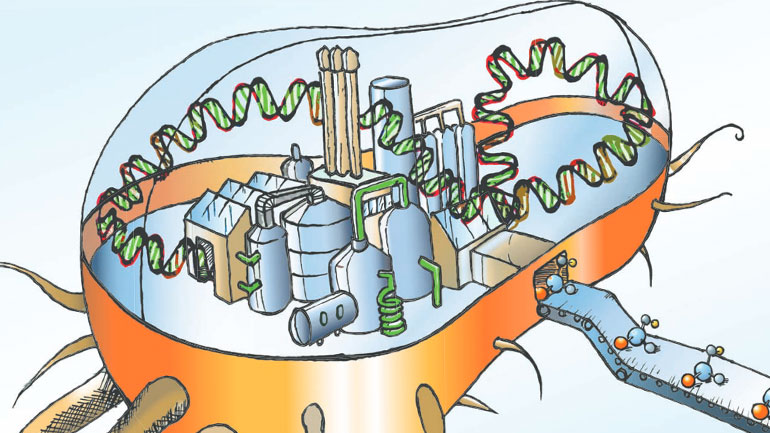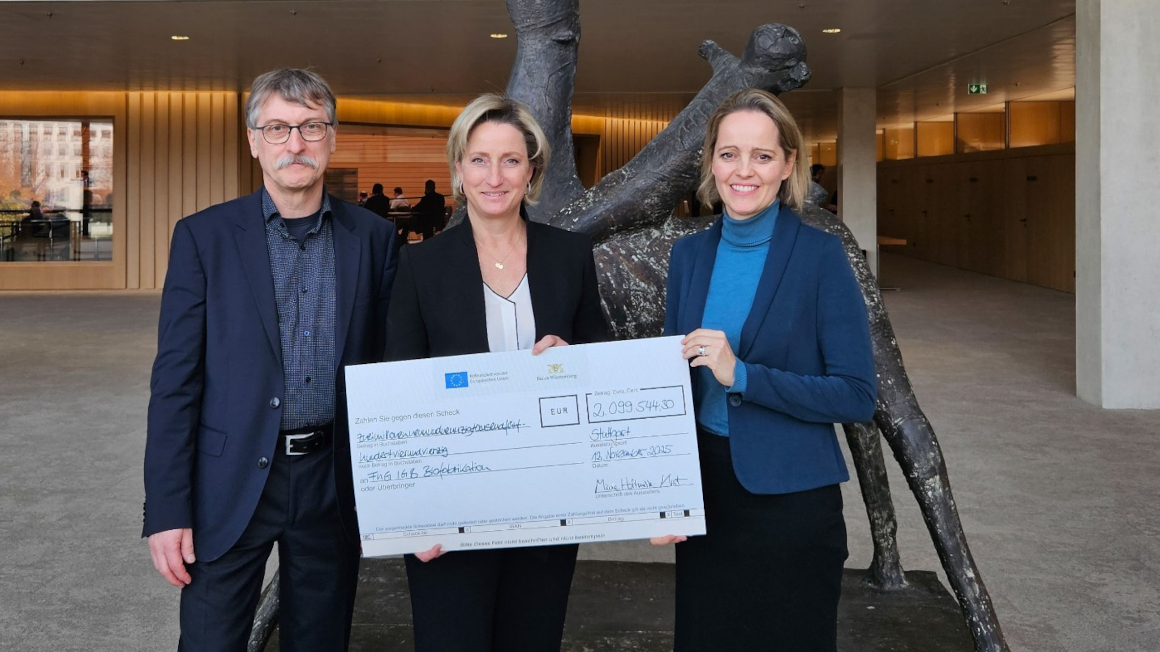Peptides for everyone
Philipp BürlingProfession:
Diploma in Business Information Technology
Position:
Founder and CEO of Numaferm GmbH in Düsseldorf

Profession:
Diploma in Business Information Technology
Position:
Founder and CEO of Numaferm GmbH in Düsseldorf

Peptides are multi talents but expensive to produce. The CEO of the Düsseldorf start up Numaferm aims to use a novel biotechnological method in order to provide the protein building blocks in a more cost-efficient way.
Although peptides are already often used in cosmetics or the pharmaceutical industry, their unused potential is even greater. Their expensive and complex production however, has limited their application possibilities thus far. The Düsseldorf start up Numaferm has developed a new tool to remedy the situation. CEO Philipp Bürling is convinced the new Numaferm technology that was developed by his business partner Christian Schwarz will significantly reduce the production costs of peptides. Within less than five years the company aims to provide huge but inexpensive quantities of the multi talents for diverse applications.
What makes peptide so special?
Peptides have very unique characteristics. For the most part they are linear chains consisting of up to 100 amino acids. There are 20 different amino acids in nature; therefore the number of different peptides is nearly limitless. Moreover, they can be very specific in their functionality. Additionally, their surface is quite large compared to their molecular weight: small amount can cause huge effects. Three peptide characteristics are especially noteworthy: pharmaceutical, antimicrobial, and adhesive. If these characteristics are combined it results in a near endless possibilities for products – for instance underwater glue or antimicrobial coatings for specific surfaces.
What is the secret of the Numaferm-Technology and what are the advances of it compared to the conventional chemical synthesis?
The most used procedure is the chemical synthesis; approximately 85-90% of all peptides are produced this way. However, one kilogram of peptide requires several tonnes of resources, including specific chemicals and organic solvents. These are expensive and are not compatible with bioeconomy. A biotechnological process to produce peptides has been difficult to come by so far. This is due to the ubiquitous presence of proteases, which destroy peptides already during the manufacturing process. There is only one location without any proteases: the surrounding of E. coli. However, their dual cell wall has prohibited an efficient peptide expression thus far. This is where our process secret lies: we are able to efficiently express peptides in E. coli transport them into the protease-free surrounding. We achieve high efficiency and high initial purity. Almost as a by-product we also simplified the purification process.
What exactly causes the significant cost reduction of the peptide production?
On average, production costs for synthesizing peptides via chemical processes are around €1 million. The biotechnological production of enzymes has already demonstrated tha cost efficient processes are possible. There, one kilogram averages at €10. We aim to come closer to those production costs with our Numaferm technology. Where exactly we will end up we will have to find out – we will definitely significantly decrease the production costs of peptides.
How interested does the industry seem to be in the new peptide manufacturing technology?
There is a huge interest. Especially for those areas that already use peptides (pharmaceuticals, cosmetics), our technologies offer enormous potential to decrease production costs. For instance, the aim is to apply peptide-based compounds for medications taken orally. So far the necessary dosage increase is way too expensive. And also with companies from completely different areas we are already working o peptide-based innovations.
For which kind of applications can the peptides be used?
Aside from the already mentioned and established applications as active ingredients in pharmaceutical and cosmetic substances, peptides are also very useful for several technical applications, such as special glues. Peptides have a huge innovative potential for these technical application, which can only be realized, however, if the costs of the raw materials can be significantly reduced. Crop protection would be another possible application.
Together with the Universities Bonn and Aachen we are currently developing a fungicide that is a combination of a peptide that binds on leaves together with an anti-fungal peptide. The advantage: if it rains the fungicide will remain on the plant and will not end up in the groundwater. These are only two examples and the list of potential application is long. Therefore we don’t just see us as experts for the biotechnological manufacturing of peptides, but also see a responsibility to convince further areas in industry of these novel products.
What are your future goals?
A huge focus is on breaking out of the ivory tower at the University Düsseldorf – that entails convincing the investors of Numaferm to move into our own offices and become active on our own. We are also working hard to gain more customers and cooperation partners. Because together with them we can modulate our developments according to their needs. Our ambitious goal is to provide the first peptides on a multi-tonne scale within less than five years.
bb/jmr


